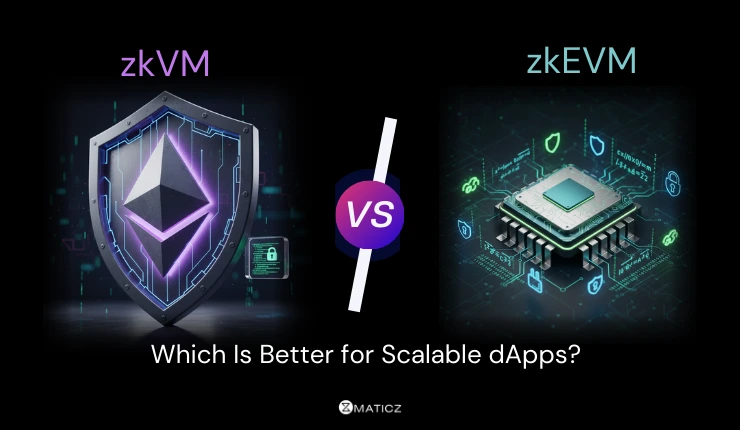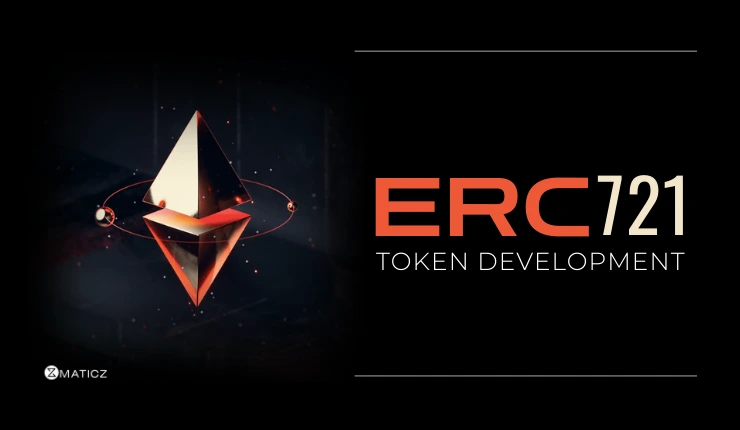Share Posts

Best Blockchain Programming Languages in 2026
46
2923
103
Blockchain is reshaping the digital landscape with its unique features because of its secure, transparent, and decentralized solutions. With the growing interest in blockchain, opting out of the right programming language for blockchain becomes crucial for developers to build efficient and scalable blockchain platforms. Here you may learn about the ten best suitable blockchain programming languages for building your blockchain solutions in 2026 their key features why they are ideal for blockchain development.
Solidity
Solidity is the most opted blockchain language of all because of the high demand for Ethereum-based blockchain development. It's for its simplicity and efficiency. Also, Solidity is designed to code smart contracts that run on all the Ethereum Virtual Machine (EVM) based platforms. Getting with Solidity is much easier to learn for those familiar with JavaScript, Python, or C++.
Key Features:
Strong community
Extensive documentation
Ideal for DApp
Rust
Rust is gaining popularity in the blockchain space because of its complete focus on safety and performance. Rust prevents common programming errors which include memory leaks and this makes it a great choice and preferred by developers for building secured and high-performing blockchain applications.
Key Features:
Memory safety
Parallel execution
High performance
Go
Go also popularly known as Golang has been widely used in blockchain projects in recent days for its simplicity and speed. It is popularly known for powering blockchains like Hyperledger Fabric and Go-Ethereum. Go’s concurrency model and efficient performance make it a top choice for developers also its easy-to-use, rapid, and non-rigid performance makes it a preferred by developers.
Key Features
Fast compilation
Excellent concurrency support
Easy to maintain and scale
Python
Python makes ease of use, readability, and vast library ecosystem make it a favorite for many developers. Although Python is not as fast as other languages, it is great for creating prototypes, backend services, and heavy-load blockchain applications.
Key Features
Extensive libraries and frameworks
Readability and simplicity
Large community support
JavaScript
JavaScript has remained a popular choice over the years because of its versatility and wide adoption in web development. Usage of JavaScript plays a major role particularly in blockchain when paired with libraries like Web3.js for Ethereum interactions, allowing developers to build any kind of complex decentralized applications with ease.
Key Features
Runs on the client and server side
Extensive libraries for blockchain
Real-time data handling
C++
C++ is a powerful language with more control over system resources, and also its run-time polymorphism, function overloading, and multi-threading make it ideal for performance-critical blockchain projects. It’s used in major blockchains like Bitcoin, Stellar, and Ripple for its speed, reliability, and robust libraries.
Key Features
High performance
Control over hardware resources
Suitable for multiple blockchain protocols
Rholang
Rholang is designed specifically for blockchain-based project development, prioritizing concurrent and decentralized computing. It’s the primary language for the RChain world, which aims to enable scalable and highly parallel processing of transactions, making it a strong choice for advanced blockchain platforms.
Key Features
Focus on concurrency
Functional and process-oriented
Ideal for smart contracts and dApps
Move
The move is a language designed specifically for secured resource management and smart contract development on the blockchain platforms. Originally developed for the Diem (formerly Libra) blockchain, Move focuses on safety and flexibility, it allows developers to create secure, verifiable, and high-performing applications.
Key Features
Strong security
Resource-oriented programming model
Better smart contract verification
Vyper
Vyper is more related to Python language which is designed for writing secure and simple Ethereum smart contracts. Vyper prioritizes security making it a great alternative to Solidity, especially for those seeking a more minimalist approach.
Key Features
Security
Simple than Solidity
Ideal for Ethereum smart contracts
Ruby
Ruby is an easy-to-learn language with a strong focus on productivity. Ruby has recently become popular among other languages for various blockchain development, especially for quick prototyping and scripting. Ruby’s intuitive syntax and ease of use make it a great choice for startups and small projects. It has become a favorite among developers who enjoy a clean and expressive coding style, which allows them to focus more on logic rather than complex syntax.
Key Features
Simple and readable syntax
Quick development and prototyping
A large number of libraries
Conclusion
Choosing the best blockchain programming language for your digital solution will make a major impact on the success of your project. Whether you're looking for performance, security, or simplicity, these languages offer robust blockchain development solutions. Get through the features of every programming language and move up with the best perfectly fits your next blockchain venture.
Maticz is one of the leading blockchain development companies that offers various blockchain development services to its clients around the globe. With years of expertise in blockchain technology, we offer next-gen blockchain solutions for your existing business or your next process. Our experts have successfully developed and launched more than 100+ digital solutions in the past three years from startups to enterprises. If you are looking for a perfect team to build your blockchain solution get in touch with our experts.
Tap Into the Future
The latest insights, posts, and project updates - straight to your inbox.




